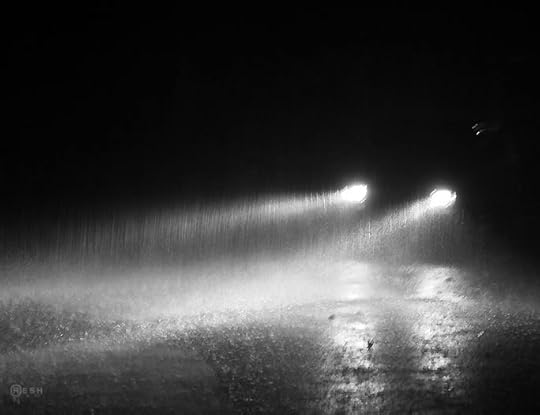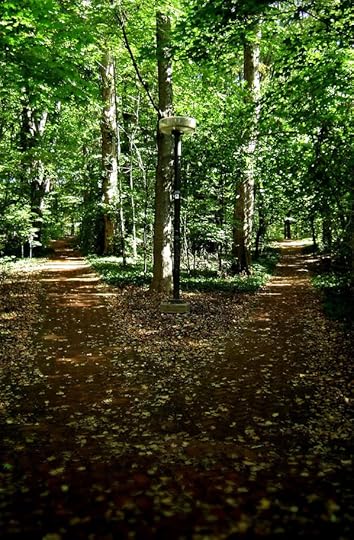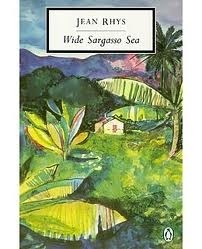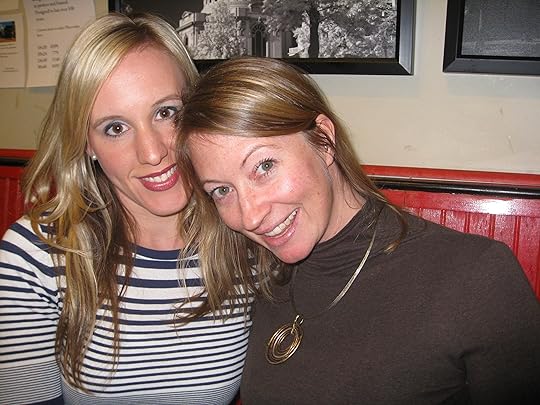Erika Robuck's Blog, page 35
September 24, 2010
Conference Withdrawal

"It's like driving a car at night. You never see further than your headlights, but you can make the whole trip that way. "
E. L. Doctorow (on writing a novel)
No, I haven't fallen off the face of the earth, I was just at the Breakout Novel Intensive Workshop last week. I don't want to say too much about the conference since I'll be posting on the experience at Writer Unboxed on October 5th. I will say that re-entry into life has been more difficult than I anticipated.
Aside from the obvious (no one to cook my meals, no housekeeping, no time for runs every morning, no more bars every evening), I found myself circling the quivering, torn up, whimpering, rearranged, bled mess that was my work in progress without being able to move in for the kill. We were both a little stunned after the conference, my manuscript and I, and neither of us knew what to do next. I was completely overwhelmed by the changes I needed to make.
Thankfully, I met with my writing partner today so we could discuss my road map for revisions. We talked about the new plot layer I'm adding, how I'll increase the tension, and which character is being cut (sorry, friendly neighbor, you made my protagonist's life too easy). I could feel my anxiety level rising as I explained each change, but also, my heightening excitement over the improvements. We set our submission date for next Tuesday.
Then I felt the shift, the lift, the easing of the anxiety. It was the deadline that liberated me.
It's just one scene. I can rewrite one scene by next week. I can build more tension, cut unnecessary words, and smooth out the plot bumps. It will take time to untangle the mess I've made, but the manuscript will turn out worlds better than it started. Each draft will reflect the growth of my characters and my self as a writer. I have to trust in the process, one scene at a time.
How do you put what you learn to work, post-conference? Do you tackle revisions chronologically, organically, or alcoholically? 
photo credit: Headlights by Reskiy @ DeviantArt.com








Conference Withdrawal

"It's like driving a car at night. You never see further than your headlights, but you can make the whole trip that way. "
E. L. Doctorow (on writing a novel)
No, I haven't fallen off the face of the earth, I was just at the Breakout Novel Intensive Workshop last week. I don't want to say too much about the conference since I'll be posting on the experience at Writer Unboxed on October 5th. I will say that re-entry into life has been more difficult than I anticipated.
Aside from the obvious (...
September 7, 2010
Not to Self-Publish
I think it was this comment on my recent blog post "To Self Publish, or Not to Self Publish" from my dear writing critique partner, Kelly, that made the little bells go off.
"What I think…is that this change of direction or at least consideration is most importantly a nod to your own maturation. It is refinement of self that counts, and what is most important is what matters most: "it's because I love it. I love to read, tell, and write stories, and I'll always do it." This is the free-est, the most essential place you'll ever be. Live in this and the rest will take care of itself…the moment we surrender the tension of controlling the outcome too is the moment the miracle finally unfolds. "
First of all, NO, you may not have Kelly as a writing critique partner, pal, and sage, because she's all mine. But second, and more important, do you hear her gentle acknowledgment of my fear?
It really boils down to fear, with a little impatience thrown in, doesn't it? And are fear and impatience any way to start a relationship or make a decision?
Should I really give a time limit of several months to find an agent before I self-publish? That's not really giving my story a chance, is it? Over and over again, I hear that persistence, plus a great story, plus persistence results in a publishing contract. Giving myself three months to find an agent is stupid and short-sighted.
I'm usually a decisive person, but everything looks a little cloudy right now. I'm having trouble discerning the path I should take, but maybe it's because my work in progress isn't ready.
Next week, I head to the Breakout Novel Intensive with Donald Maass and Lorin Oberweger. Hemingway's Girl probably won't know what hit it after the workshop. I look forward to devoting all my waking hours for a whole week to writing. No doubt, I'll return with a new set of ideas.
I'd love to hear yours, too.
Not to Self-Publish
I think it was this comment on my recent blog post "To Self Publish, or Not to Self Publish" from my dear writing critique partner, Kelly, that made the little bells go off.
"What I think…is that this change of direction or at least consideration is most importantly a nod to your own maturation. It is refinement of self that counts, and what is most important is what matters most: "it's because I love it. I love to read, tell, and write stories, and I'll always do it." This is the free-est...
August 31, 2010
Review: The Red Queen

" They all speak of a slight girl on a big horse, a banner over her head, glimpsed where the fighting was the fiercest, a girl like a prince, sworn to bring peace and victory to her country, giving herself to the service of God, nothing more than a girl, nothing more than a girl like me: but a heroine ."
The Red Queen , Philippa Gregory
The Red Queen by Philippa Gregory was published in August of 2010 and is 400 pages. Gregory is one of my favorite historical fiction authors, and it never fails to amaze me that she can continuously write about all stages of Tudor England with fresh perspective.
The Red Queen is the story of Margaret Beaufort, a young, virtuous child of the Lancaster house, obsessed with Joan of Arc, insistent from an early age that she sees visions from God, and that she is destined for holiness. When Margaret is forced into marriage at twelve years of age, and in child bed by thirteen, she reconciles herself to her new position as mother of a child third in line from the throne of England. She spends the rest of her life maneuvering, manipulating, and marrying–in the name of God–to make her son king.
I didn't like Margaret. She was shrewd, proud, and her desire for recognition for her holiness negated it. Yet, I pulled for her. Her stubborn determination was enough to put me in her corner. Gregory showed her skill, indeed, by making me root for an unlikable heroine.
The book was a masterpiece of history, plot, and intrigue. I read it in three nights, and it kept me up way past my bedtime. Gregory fans and historical fiction fans, in general, won't be disappointed.








Review: The Red Queen

" They all speak of a slight girl on a big horse, a banner over her head, glimpsed where the fighting was the fiercest, a girl like a prince, sworn to bring peace and victory to her country, giving herself to the service of God, nothing more than a girl, nothing more than a girl like me: but a heroine ."
The Red Queen , Philippa Gregory
The Red Queen by Philippa Gregory was published in August of 2010 and is 400 pages. Gregory is one of my favorite historical fiction authors, and it never fails...
August 24, 2010
To Self-Publish, or Not to Self-Publish

I recently completed a fifth draft of my work in progress, Hemingway's Girl, and I'm preparing my assignments for the Breakout Novel Intensive Workshop in September. After preparing the synopsis, my goals, and scene breakdowns, I'm finally at a place where I know just about every word of my manuscript just in time to have it critiqued, torn apart, and reassembled.
I actually relish this process, and can't wait to see the direction the workshop takes my manuscript. I wonder if there will be a major plot or character adjustment that snaps all the other pieces into place. I'm eager to see which scenes will make the final cut, and which will be sacrificed to the *meh* file, aka, the shredder.
But I have to confess that I'm even more interested in the way I'll publish the book.
It was my intention when I started this blog to be as transparent as possible about every step of my personal writing process and journey, so I'm continuing in that tradition when I tell you I'm seriously considering self-publishing my second book.
In case you don't know, I self-published my first book, Receive Me Falling. I've more than earned back my initial investment, visited 30 book clubs, and peddled the book at countless art festivals. My readers are eager to read the Hemingway book, and the sequel to the first book I haven't even begun write. If I go the traditional publishing route, will they have to wait years before they see it? They may have forgotten about me by then.
All along, I thought my ultimate goal was to get picked up by a "traditional" publisher, but the more I read, I don't know what that is, anymore. When I sit down and ask myself why I write–really, why I write–it's because I love it. I love to read, tell, and write stories, and I'll always do it. I'd be lying if I said I didn't want the external validation of an agent and traditional publisher, but then I look at my Amazon reviews, my book blogger reviews, and sales figures, and that may just be all the validation I need.
I have many traditionally published writer friends, and I have to say, many are dealing with more frustrations and stresses than I am. When I hear things like a writer got an advance for less than $10,000 for a book that won't be published for two more years, or sales numbers aren't hitting publishers' goals, or unresponsive editors are driving them up the wall, I think self-publishing might be the best avenue.
When I consider how long I've been waiting to just to hear back from an agent on a set of revisions I submitted months ago, and then, if she signs me, how long I'll have to wait to hear from a publisher, and then, how long I'll have to wait if the book is picked up to be published, and then, the worry that I'll lose my editor or the house will close, it almost seems like madness to go the traditional publishing route.
And yet…
I still feel like I need to try. I am, after all, a traditional girl. I want the expertise of an agent and publishing house editor to help make me a better writer. I love the industry and want to support not only the indie side, but also, the agents, publishing house editors, and chains that have fed me the all those delicious books for so many years, that have inspired me to write in the first place.
So I think I'll give myself a time limit. It may be foolish, but after the workshop, if I don't have an agent by late winter/early spring, I'll self-publish Hemingway's Girl. After all, I can still query agents after I've published Hemingway's Girl, especially if I have super sales numbers and reviews.
So that's where I am, in all honesty.
What do you think? Especially if you're a writer–traditional, self-published, or aspiring–please weigh in. Feel free to post anonymously if it will make you more comfortable.
*photo credit: jackispiboi at DeviantArt.com*








To Self-Publish, or Not to Self-Publish

I recently completed a fifth draft of my work in progress, Hemingway's Girl, and I'm preparing my assignments for the Breakout Novel Intensive Workshop in September. After preparing the synopsis, my goals, and scene breakdowns, I'm finally at a place where I know just about every word of my manuscript just in time to have it critiqued, torn apart, and reassembled.
I actually relish this process, and can't wait to see the direction the workshop takes my manuscript. I wonder if there will be a m...
August 21, 2010
Review: Wide Sargasso Sea

"We pulled up and looked at the hills, the mountains and the blue-green sea. There was a soft warm wind blowing but I understood why the porter had called it a wild place. Not only wild but menacing. Those hills would close in on you." (69)
Wide Sargasso Sea , Jean Rhys
Wide Sargasso Sea by Jean Rhys was published in 1966, and is 190 pages. I remember someone, somewhere telling me this was her favorite book. It was based on the "mad woman" upstairs in Jane Eyre, a fictional history of the wife who went crazy. When I learned this history included being raised on a Caribbean plantation and was set just after slavery ended, I knew I'd be interested since my first book, Receive Me Falling, is set on a Caribbean sugar plantation.
I loved the book. It had the opiate landscape of a Poe story, full of unreliable narrators, voodoo, and a dreamlike/nightmarish quality that made it both mesmerizing and impossible to put down.
The first narrator, Antoinette Cosway, tells of her upbringing on a slave plantation with her lusty father, her unstable mother, and her mute younger brother, along with a smattering of "unmentionable" half-slave relatives. The death of her father, torching of her plantation by angry freed slaves, rejection of her mother, and death of her brother make Antoinette a nervous, fearful woman whose only comforts are her island surroundings and a few, trusted slave companions.
After Antoinette's mother remarries, her stepfather corners an Englishman (Jane Eyre's, Mr. Rochester) and arranges an ill-fated marriage. What ensues is the disastrous mingling of two people from two very different worlds, steered to their doom by the suspicious, skittish nature of the man.
What is most interesting about the book is the way Rhys taints everything of beauty. Rochester acknowledges Antoinette is beautiful but he feels no love for her. He tells of the lush, tropical surroundings, but feels as if they'll swallow him. Antoinette tells Rochester she's happy, but follows it by saying she's afraid of happiness because she's never experienced it. Rhys doesn't give the characters or the readers a moment of peace.
Wide Sargasso Sea is a tragedy, but one worth reading. If you like Toni Morrison or Edgar Allan Poe, you'll enjoy this.








Review: Wide Sargasso Sea

"We pulled up and looked at the hills, the mountains and the blue-green sea. There was a soft warm wind blowing but I understood why the porter had called it a wild place. Not only wild but menacing. Those hills would close in on you." (69)
Wide Sargasso Sea , Jean Rhys
Wide Sargasso Sea by Jean Rhys was published in 1966, and is 190 pages. I remember someone, somewhere telling me this was her favorite book. It was based on the "mad woman" upstairs in Jane Eyre, a fictional history of the w...












